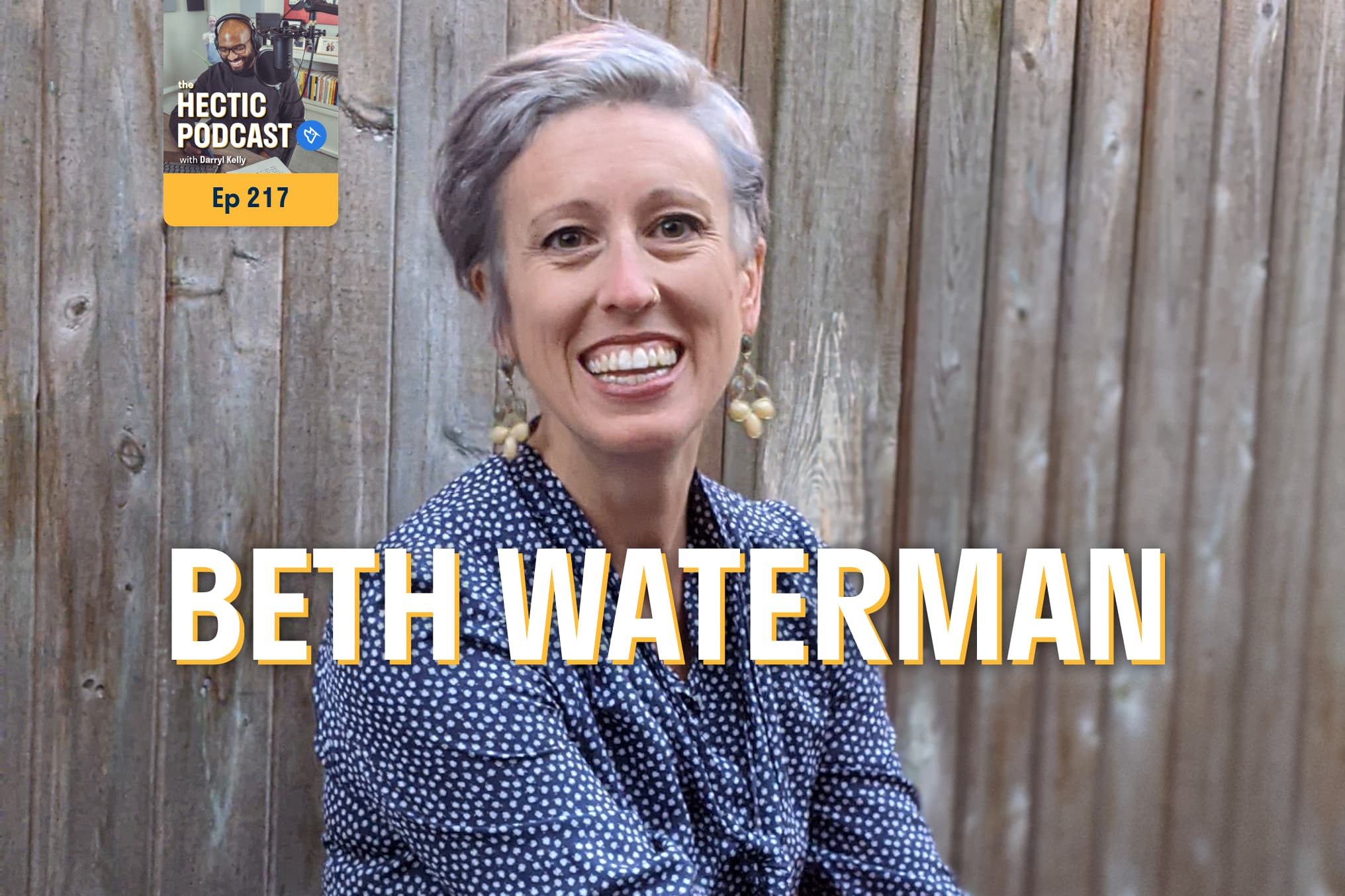
Life is full of traumas.
Whether you’ve experienced a major traumatic event or had a less powerful experience that changed the way you view the world, you carry scars that affect you. If we don’t address these wounds, they often take control of us in ways we can’t control and may not even recognize.
During the podcast this week, licensed mental health counselor Beth Waterman shared some of the ways these traumas can continue impacting our lives. She talked about individual traumas, those we experience on our own, and collective traumas, which are experienced by a large number of people who can relate to each other through the scars they share.
The pandemic was a collectively traumatic experience for many, for example. Though everyone may have their own story, there are millions of other people who can relate to the experience and the effects it had.
Similarly, freelancers are united by the collective traumas we’ve endured. It’s why a podcast such as Per Our Last Email resonates so well. We can sit and laugh about the terrible encounters we’ve had in our jobs because we’ve all been there and we understand what it’s like to go through it.
Unfortunately, like many traumas, we are accustomed to shrugging these events off as part of the hustle or just something that comes with the job. It’s only when these experiences resurface that we remember how they affected us.
One of the best ways to address collective trauma is through community, Beth says. Sharing these experiences reminds us that we’re not in it alone. It gives us the support and validation we need to face and heal our hurts. When we can recognize the traumas that are affecting us, we can address the lingering effects rather than pushing them down.
So, in the spirit of naming and claiming our traumas, here are some of the all-too-common-but-really-not-okay experiences every freelancer has.
Nearly every freelancer met a cheapskate client when they started out. Whether they tried to talk your price down or get you to work for free, they made it clear that you and anything you offered weren’t worth the prices you researched extensively and agonized over.
No matter how that encounter ended, it left a scar. Whenever it’s time to quote a project, that version of you may make you second guess the amount or lower it just in case.
In these moments, take a moment to sit and breathe. You calculated that number for a reason, so remind yourself why you decided it was appropriate. Don’t let that bully of a client keep you from valuing yourself as highly as you should.
Nearly every freelancer will experience periods of famine during their career. The nights you lay awake, calculating your income and wondering where your next job will come from will forever change your view of independent creation. Even at your most successful, you will always remember being one bad month away from giving up on your dream.
When you feel the weight of this fear pressing in, remind yourself of the steps you’ve taken to prevent it. Use a tool like Moxie to keep track of your pipeline and its health. You’ve proven that you can succeed on your own, past-you just needs a little reminder to believe it.
You know that part of Pirates of the Caribbean when Barbossa says, “The code is more what you’d call ‘guidelines’ than actual rules”? That’s how some clients like to treat payment periods.
Few things are worse, especially as a newbie freelancer, than chasing down a client for a payment. You dread the possibility that you might never get paid or will have to pursue legal action to force the issue. It changes the ways you view and interact with clients forever.
Though you can’t guarantee that every client will pay on time, you can protect yourself with strong contracts and late fees. You can also pay attention to the red flags that indicate a problem client. Most importantly, you can reach out to the community at large for tips on preventing these situations and getting your money. With a little collective help, you can address the trauma and find the best way to achieve a positive outcome.
The community we’re building at Moxie is designed to make your freelance journey better in every way. Join us on the podcast or on social media to find the support that will validate your traumas and help you find healing.
Get the full story here to hear Beth’s suggestions for processing your traumas and protecting your mental health.
